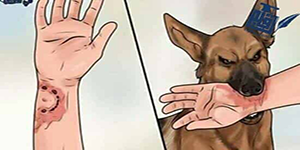Staff, professors, researchers and others of JAMK University for applied science were very helpful and easy to communicate, discuss and cooperate.
My regular day as a teacher at JAMK University for applied science starts by Campus tour , meetings with staff members or adminstration, then giving lecture, Lunch, complete lecture, leaving campus to make free city tour, or visit to home of a staff member.
The best part of my experience at JAMK University for applied science was giving lectures to international students, concept lab session attendance, home visit to one of the teaching staff, and attending ice hockey match.
The biggest challenge for me during my trip was the train that i have to change in a certain point within ten minutes.
My impressions of Finland and Jyväskylä city are:
Finland is a nordic country deserves being number one poulation in happiness indicator world wide, also the first educational system in Europe , and the 4th rank in education system worldwide, with population of 5 millions, and very developed transportation system , in addition to their advanced rank in technology.
Jyväskylä is a beatiful city, with very friendly and civilized population about 300 000 people .Furthermore, it is a student-friendly city offering a wide range of activities and opportunities, a modern centre for industry and learning, a “pocket size metropol” with a lively urban centre, all the services, shops, schools and work are close at hand, and a wide variety of leisure and sport activities.
My advices for colleagues at PUA that, in the future, will do staff exchange at JAMK University for applied science, that they have to focus on their predefined goals and discuss every detail in their visiting agenda, focus on practical results, new ideas and practicies. Moreover, find out the reasons behind every differnt and new teaching method. And Finally try to develop and mainatin an excellent and continous relationship with their teaching staff.
This experience added to my professional role at PUA a lot, including new practices such as innovation week, new courses like concept lab, new teaching strategies such as self-learning, and removing pressure on students (tasks due dates, and exams) preparing online courses, as well as, using the available resources effectively such as the Library.
I have taken with me from this experience on a personal level, was how to acheive the educational goals without pressure on my students, as well as, the great experience of teaching mobility for international students, experiencing new culture, and building excellent network with experts and teaching staff at JAMK University.



